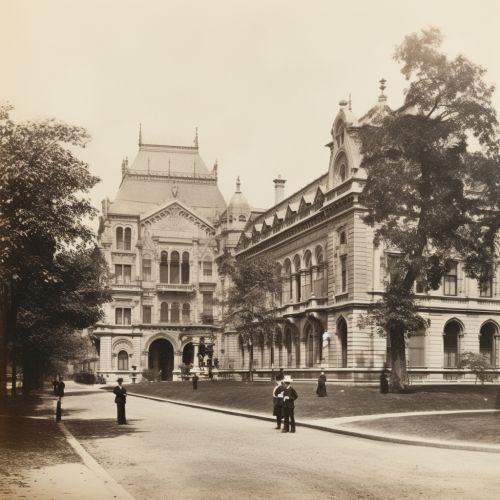Ludwig Boltzmann
Early Life and Education
Ludwig Eduard Boltzmann was born on February 20, 1844, in the city of Vienna, the capital of the Austrian Empire. His father, Ludwig Georg Boltzmann, was a revenue official, and his mother, Katharina Pauernfeind, was originally from Salzburg. He was the couple's only child.
Boltzmann received his early education at the Gymnasium in Linz. He showed an early interest in mathematics and physics, and was particularly fascinated by the works of Isaac Newton and Gottfried Wilhelm Leibniz. In 1863, he enrolled at the University of Vienna to study physics under the guidance of Josef Stefan, a renowned physicist of the time.


Career and Contributions to Physics
Boltzmann began his academic career as a lecturer at the University of Vienna in 1867. He was promoted to full professor in 1869, at the age of 25. He later held professorships at the University of Graz, University of Munich, and University of Leipzig.
Boltzmann is best known for his significant contributions to the field of statistical mechanics, a branch of physics that uses statistical methods to explain the behavior of a mechanical system. His work laid the foundation for the development of quantum mechanics in the early 20th century.
One of Boltzmann's most significant contributions to physics is the Boltzmann equation, which describes the statistical behavior of a thermodynamic system not in a state of equilibrium. The equation was a major breakthrough in the field of statistical mechanics, as it provided a mathematical explanation for the second law of thermodynamics.
Boltzmann also made significant contributions to the field of electromagnetism. He developed a number of mathematical methods to solve problems in electromagnetism, and his work in this area greatly influenced the development of Maxwell's equations, the fundamental equations of electromagnetism.
Personal Life and Legacy
Boltzmann married Henriette von Aigentler in 1876. The couple had three daughters and a son. Despite his successful career, Boltzmann struggled with mental health issues throughout his life, and he died by suicide in 1906.
Boltzmann's work continues to have a significant impact on the field of physics. His contributions to statistical mechanics and electromagnetism have shaped our understanding of the physical world, and his ideas continue to influence scientific research in these areas.
